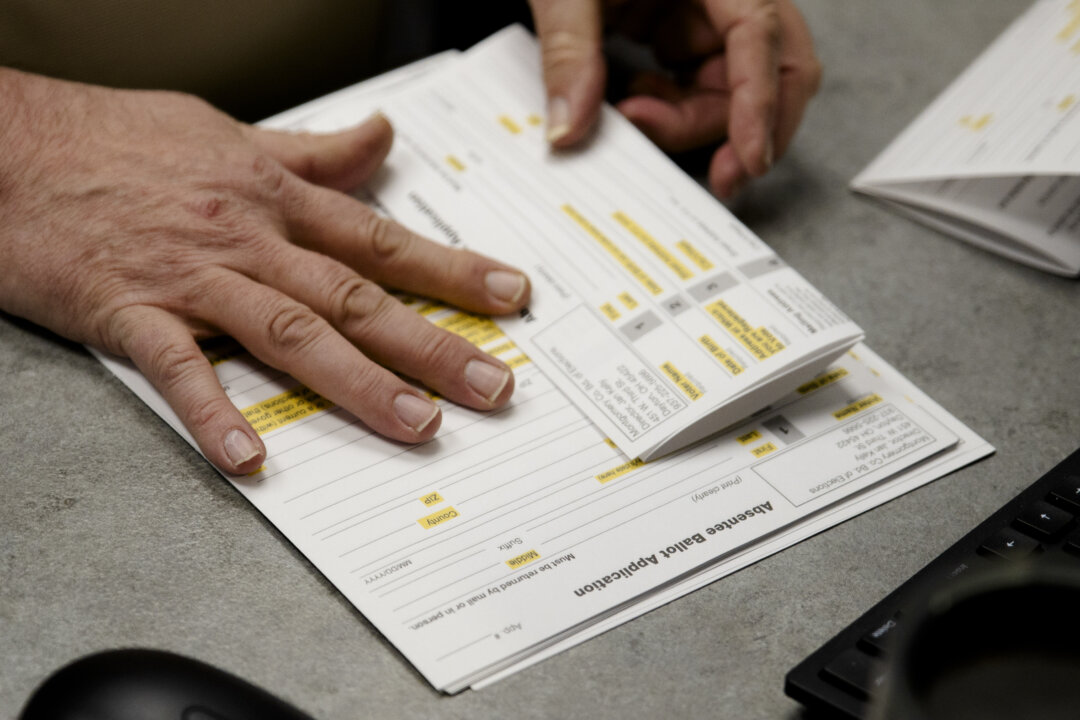‘The law requires me to refer these individuals to the attorney general, and that’s what we’re doing today,’ Secretary of State Frank LaRose said.
Ohio Secretary of State Frank LaRose has referred about 600 noncitizens for prosecution because they were illegally registered to vote, including 138 who were found to have cast ballots in elections.
LaRose said in a news release Wednesday that his office was duty bound to make sure noncitizens were not voting in elections.
In comparison, 148 noncitizen cases were referred in 2022, 117 were referred in 2021, and 354 were referred in 2019. More than 8 million people are registered to vote in Ohio.
“The law requires me to refer these individuals to the attorney general, and that’s what we’re doing today,” LaRose said.
Earlier this year, his office audited Ohio’s voter registration database, which resulted in 154,995 registrations being removed, because they were inactive for at least four consecutive years.
Civil rights organizations at the time asserted that the effort was a form of voter suppression. But LaRose said the effort is ongoing and that additional registrations could yet be canceled before November’s presidential election.
The secretary of state has said his citizenship verification efforts this year are the most comprehensive the office has ever undertaken. The analysis includes cross-checks against records provided by the Ohio Bureau of Motor Vehicles, the Department of Homeland Security’s federal database of noncitizens, the Social Security Administration, federal jury pool data, and other resources.
LaRose, according to his office, created a full-time Public Integrity Division of the state Office of Data Analytics and Archives to administer elections.
“The Ohio General Assembly is currently considering legislation to make the division’s Election Integrity Unit a permanent function of the office,” the news release added.Ohio has long been considered one of several swing states that may sway the result of presidential elections, although former President Donald Trump won the state in both 2016 and 2020. Since the last election, Trump has been vocal about potential voter fraud in elections.
Ahead of the November presidential election, Republicans have filed several lawsuits that target various state election laws.
The Republican National Committee (RNC), which had a leadership shakeup earlier this year, has filed lawsuits related to voter ID laws, mail ballots, and voter roll maintenance, among other issues.
One election-related lawsuit was decided by the U.S. Supreme Court earlier this week. The high court, in a 5–4 decision, granted an RNC request to reinstate an Arizona voter ID law passed in the Republican-controlled state Legislature that requires new voters to prove their U.S. citizenship when using a state voter form.
The justices’ decision affects some 41,000 voters in the swing state who used state registration forms and did not provide proof of citizenship by providing a birth certificate or another document.
“Huge win for the integrity of elections,” the Republican Party wrote on social media in response to the court’s ruling.
Chief Justice John Roberts and Justices Clarence Thomas, Samuel Alito, Neil Gorsuch, and Brett Kavanaugh voted in favor of reinstating the citizenship rule. Justices Sonia Sotomayor, Elena Kagan, Amy Coney Barrett, and Ketanji Brown Jackson voted against it.
The Associated Press contributed to this report.

